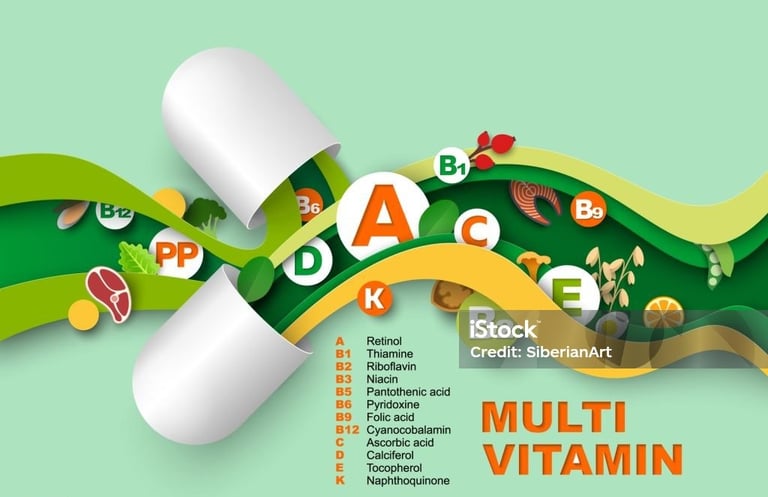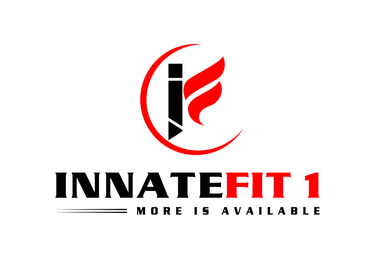Visit Innatefit1.com for exercise wear and equipment!!!
Top Supplements for Muscle Recovery and Soreness Relief: What Beginners Need to Know
Looking to speed up muscle recovery and reduce soreness? Discover beginner-friendly supplements like protein powder, BCAAs, and magnesium that can help you recover faster and train harder.
NUTRITION AND RECOVERY
Joseph Battle
11/18/20243 min read


Introduction: What Are Supplements for Muscle Recovery?
Muscle recovery is crucial, especially for those new to fitness. Without proper recovery, muscle soreness and fatigue can derail your workout progress and motivation. Thankfully, certain supplements can help speed up recovery, reduce soreness, and enhance muscle repair. But with so many options on the market, which ones are truly effective?
In this beginner-friendly guide, we'll explore some of the most popular muscle recovery supplements, including protein powders, BCAAs, magnesium, and more, to help you decide which are worth trying.
Understanding Muscle Recovery
Why Muscle Recovery Matters
When you exercise, your muscles experience microscopic tears. This process is a normal part of muscle growth, but it leads to soreness, especially if you're just starting. Proper muscle recovery ensures these tears heal efficiently, allowing muscles to grow stronger.
The Science Behind Muscle Soreness and DOMS
Delayed Onset Muscle Soreness (DOMS) usually hits 24-48 hours post-workout. It's the result of muscle damage and inflammation. Supplements that aid recovery can help minimize this discomfort, getting you back to your routine faster.
Key Benefits of Muscle Recovery Supplements
Accelerating Muscle Repair: Supplements like protein powder can fast-track muscle repair.
Reducing Muscle Soreness: BCAAs and Omega-3 fatty acids help reduce soreness and inflammation.
Supporting Overall Performance: Faster recovery translates to better performance in future workouts.
Popular Muscle Recovery Supplements for Beginners
1. Protein Powder: Essential for Muscle Repair
Protein is a building block for muscles. After a workout, your body needs protein to repair muscle fibers. Whey protein is especially popular due to its quick absorption, but plant-based options like pea protein are great for those with dietary restrictions.
How Much Protein Do You Need? Experts recommend 20-30g of protein within an hour after exercise to maximize muscle repair.
2. Branched-Chain Amino Acids (BCAAs): Preventing Muscle Breakdown
BCAAs (leucine, isoleucine, and valine) are essential amino acids that prevent muscle breakdown during and after intense workouts. They also help reduce muscle fatigue and soreness.
Best Time to Take BCAAs Taking BCAAs before or during your workout can prevent muscle damage, while post-workout BCAAs enhance recovery.
3. Magnesium: Relaxing Muscles and Reducing Cramps
Magnesium plays a key role in muscle relaxation, reducing cramps and spasms after exercise. It's especially helpful if you experience frequent muscle cramps post-workout.
Magnesium-Rich Foods vs. Supplements Leafy greens, nuts, and seeds are rich in magnesium. However, if you have a deficiency, supplements can provide a quick boost.
4. Omega-3 Fatty Acids for Reducing Muscle Inflammation
Omega-3 fatty acids found in fish oil can reduce muscle inflammation, helping you recover faster. If you prefer plant-based options, look for flaxseed or chia seed oil.
Dosage Recommendations A daily dose of 1-2g of Omega-3s is often recommended for reducing inflammation.
5. Glutamine: Supporting Immune Health and Muscle Recovery
Glutamine is an amino acid that helps repair muscle tissue and supports the immune system, which can be weakened by intense workouts.
Should You Supplement with Glutamine? For those training at high intensity, glutamine can reduce muscle breakdown and boost recovery.
How to Choose the Right Supplements
Quality and Purity: Look for third-party tested products to ensure they're free of contaminants.
Reading Labels: Always check for added sugars, artificial fillers, and allergens.
Dos and Don'ts of Taking Muscle Recovery Supplements
Do: Take supplements at the right time (e.g., protein right after workouts).
Don't: Rely solely on supplements—balance them with a nutrient-rich diet.
Natural Alternatives to Supplements
Instead of reaching for supplements, you can focus on foods rich in recovery-boosting nutrients like:
Protein: Eggs, lean meats, and legumes.
Antioxidants: Berries, leafy greens, and nuts.
Hydration: Water and electrolyte-rich drinks like coconut water.
Frequently Asked Questions
Do Beginners Need Supplements?
No, but they can accelerate recovery, especially if your diet lacks certain nutrients.
Are There Any Side Effects?
Most are safe when taken as directed, but overuse can cause digestive issues.
How Long Should You Use Recovery Supplements?
As needed, typically during periods of intense training.
Can You Build Muscle Without Supplements?
Yes, a well-balanced diet can also support muscle growth.
What’s the Best Time to Take Recovery Supplements?
Post-workout for protein and BCAAs; Omega-3s can be taken anytime.
Do Women Need Different Supplements Than Men?
No. However, dosage may vary based on body weight.
Conclusion
Incorporating supplements like protein powder, BCAAs, and magnesium can make a noticeable difference in your muscle recovery journey. However, supplements should enhance—not replace—a balanced diet and a good night's sleep. Prioritize natural foods, stay hydrated, and listen to your body for optimal results.
